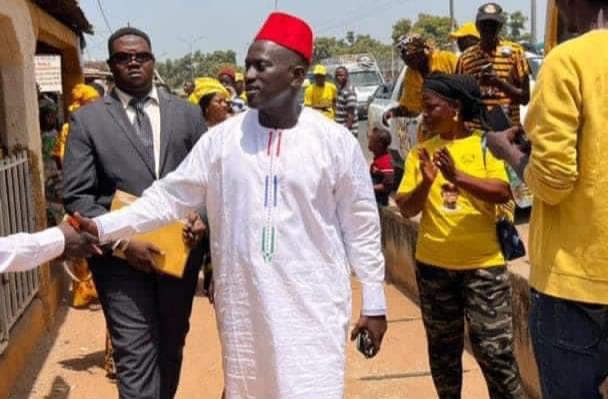By Sarjo Brito
Momodou Sabally’s rejection by the Independent Electoral Commission has ignited a debate on selective justice in The Gambia. Momodou Sabally’s National Assembly bid was cut short during the filing of his nomination papers in Brikama West Coast Region where officials of the IEC told him the reason for his disqualification was because he was adversely mentioned in the Janneh Commission report. The decision of the IEC has since been met with different opinions, with some accusing the Barrow government of cherry-picking people who the commission’s recommendations apply to and not.
‘’A government white paper is not Law. It is a policy document. Only the courts can give it the force of law. It is for that same reason that the courts rejected the legality of the selling of Jammeh’s assets by the Ministry of Justice and deemed it illegal. If the IEC is now rejecting Sabally then it means they have acted outside the remit of the Law. If lawyer Darboe was accepted as a presidential candidate there is absolutely no reason that sabally should be rejected. Both were found wanting by a Commission of Inquiry. You cannot accept Lawyer Darboes nomination and reject that of Momodou Sabally’’ – Melville Roberts argues
‘’What’s good for the goose, is good for the gander. If Sabally Momodou is disqualified, then the president should do himself a favour and dismiss some of his cabinet ministers named in the Janneh Commission report. Some people might see this partisan but we’re treading in dangerous waters. The President is there for all Gambians and should not be allowed to score political points by people’’—Dawda Ceesay
Momodou Sabally and his supporters alike have accused the Independent Electoral Commission of using Janneh Commissions adverse finding to target him while having other people serving Ministerial positions who have equally been found wanting by a commission. while his supporters come to his defence, others believe Sabally’s disqualification is clearly justified in the 1997 Constitution.
‘’Section 90(1)e of the Constitution is very clear with regards to Sabally’s disqualification. It states: No person shall be qualified for election as a member of The National Assembly if he or she
“has been found by the report of a commission or committee of inquiry (the proceedings of which have been held and published in accordance with the relevant law) to be incompetent to hold public office by reason of having acquired assets unlawfully or defrauded the State or misused or abused his or her office, or wilfully acted in a manner prejudicial to the interests of the State, and the findings have not been set aside on appeal or judicial review”.
‘’There’s no ambiguity in this provision. Sabally isn’t qualified. Public office means any national, state, or local governmental position of public trust and responsibility, whether elective or appointive, which is created or prescribed or recognized by constitution, statute, or ordinance’’—PDOIS’S Sulayman Bokar Bah wrote.




